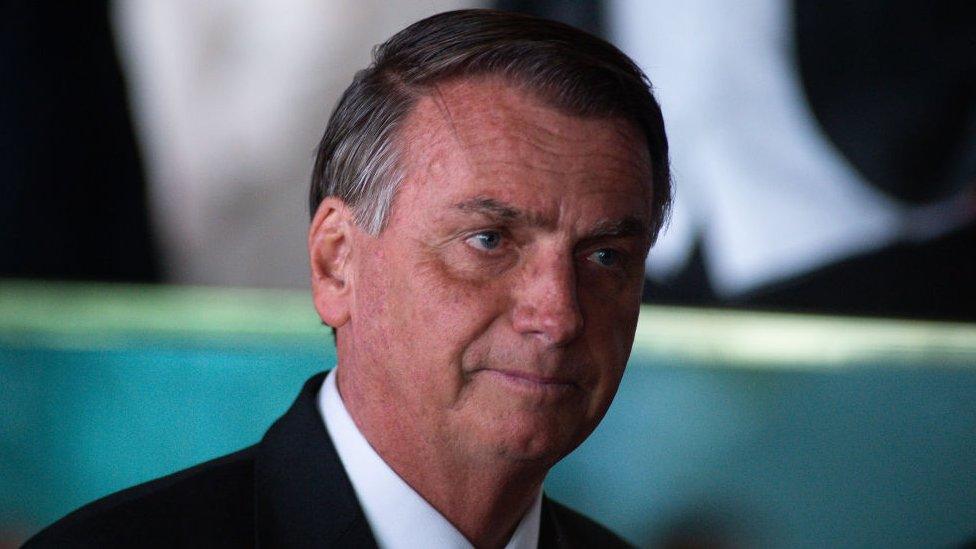Jair Bolsonaro returning to Brazil for first time since 8 January riots
- Published
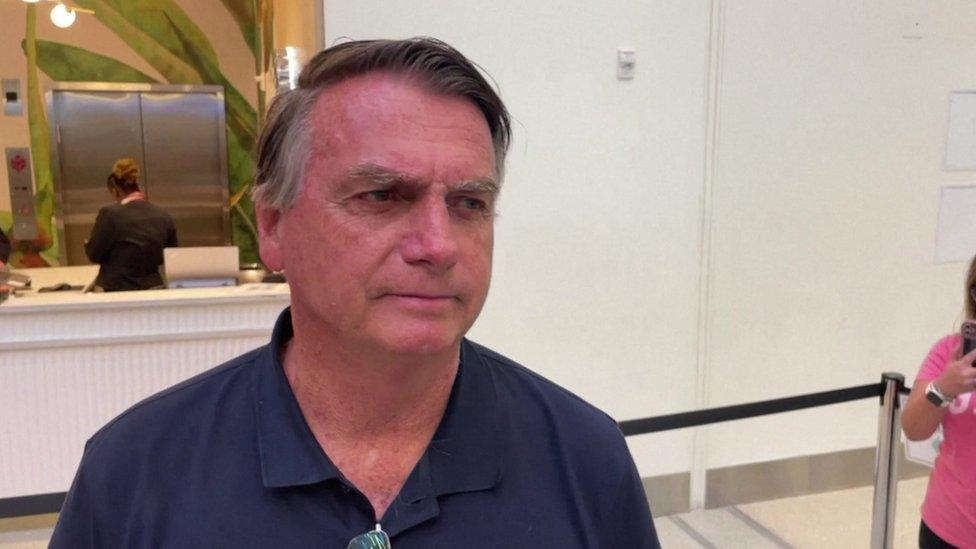
Jair Bolsonaro gave an interview to a CNN Brasil journalist at Orlando airport before boarding his flight home
Former Brazilian President Jair Bolsonaro is on his way back to Brazil, after spending months in the US.
The far-right politician is returning for the first time since supporters stormed the Supreme Court, Congress and presidential palace in January.
The riots came after weeks of protests claiming fraud in his defeat to President to Luiz Inácio Lula da Silva.
Speaking at an airport in Florida before boarding a flight, he said he would not lead the opposition to Lula.
But in an interview with CNN, Mr Bolsonaro also said he would help his Liberal Party as a "person with experience" and that he intended to travel across Brazil to campaign in next year's local elections.
After arriving in the terminal in Orlando, he spoke and took pictures with throngs of supporters.
Mr Bolsonaro is scheduled to land in the Brazilian capital, Brasília, early on Thursday local time (three hours behind GMT).
The former president faces numerous legal challenges on his return, including an investigation into whether he incited rioters who stormed key government buildings a week after Lula's inauguration.
He is also at the centre of a scandal over allegations that he tried to illegally import and keep millions of dollars' worth of jewellery given to him and his wife by Saudi Arabia in 2019.
The jewels were impounded by Brazilian customs officials when a member of Mr Bolsonaro's entourage tried to bring them into the country in 2021.
On Wednesday, federal police summoned Mr Bolsonaro to testify in the Saudi case on 5 April.
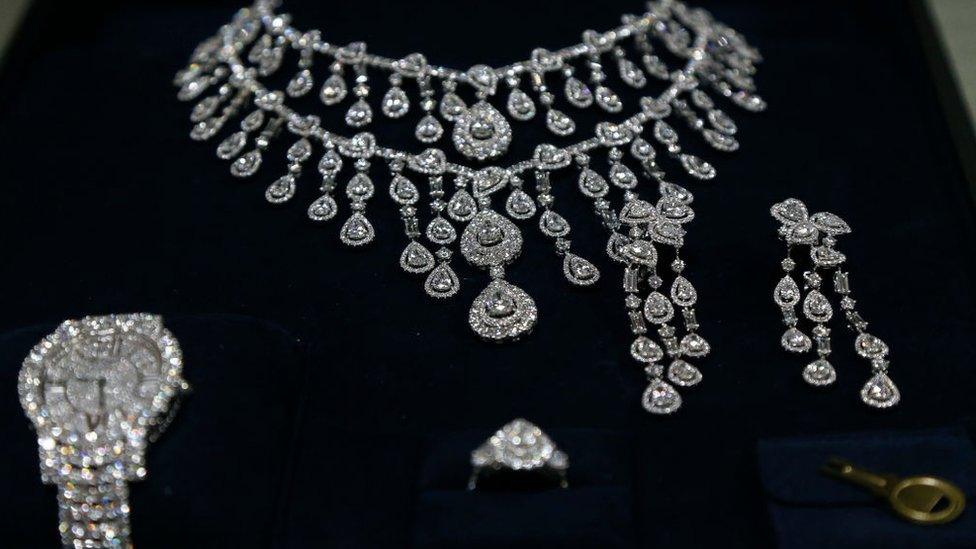
The jewels given to the Bolsonaros have captured the attention of the Brazilian press
In addition, he faces 16 cases before Brazil's Superior Electoral Tribunal (TSE), which could prevent him running for office for eight years, removing him from the 2026 presidential race.
He left the country in December before his successor was sworn in, travelling to Florida and applying for a six-month US tourist visa.
Mr Bolsonaro narrowly lost the presidential election last October to his left-wing rival, which led to unsubstantiated claims by his supporters of voting fraud - eventually escalating into the violent scenes in the capital.
He has voiced "regret" for the unrest but denies he caused it.
However, Brazil's Supreme Court has agreed to include him in its investigation into the storming of government buildings on 8 January.
On that day thousands of radical Bolsonaro supporters, who continue to say the election was rigged, stormed the country's Supreme Court, Congress and presidential palace in Brasília.
They had been camping in and around the city for weeks calling for a military coup and more than 1,200 people are being charged over the riot.
In February, Brazilian Senator Marcos do Val said Mr Bolsonaro was at a meeting in December about a plot to keep him in power, alleging he was asked to get the head of the electoral authority to compromise himself to discredit the presidential election.
Neither he nor his representatives have yet commented on Mr do Val's remarks.
January 2023: Key moments as Bolsonaro supporters storm Brazil government buildings
Mr Bolsonaro's return to Brazil creates risks and uncertainty for his country, the Lula administration and for himself. It is hard to tell how the politically polarised Brazilian public will react to his presence.
For the last 89 days, as Mr Bolsonaro spent his extended holiday in the US, the former head of state had appeared only occasionally in the media.
He was sometimes seen eating at fast food restaurants, like he was just another tourist relaxing during his carefree Florida vacation.
But Mr Bolsonaro is now returning to a tense situation back home.
Brazilian media are reporting that the federal police have activated special security plans for his arrival and are asking his followers to abstain from organising a large, crowded event to welcome him at the airport.
According to CNN, police expressed objections to his original desire to be driven through the streets of Brasilia in an open-top car.
Authorities were also moving to cordon off the Esplanade of the Ministries, the ceremonial heart of the capital, which is home to the government buildings stormed on 8 January.
Mr Bolsonaro being under investigation over allegations that he and some of his close advisers played some role in instigating the rioting is not his only legal problem.
Several other investigations by Brazilian authorities are examining allegations of his participation in electoral disinformation and other potential irregularities, some of which could be punishable with a prison sentence.
Because of this, many Brazilian observers had expected Mr Bolsonaro to try to extend his stay in the US. Instead, he now returns to Brazil to face an uncertain personal situation.
Having denied, as he boarded his flight, that he wanted to lead the opposition, Mr Bolsonaro promises he only wants to offer the country his expertise after years in public service.
But his arrival in Brazil will probably mean additional problems for Lula, who is already struggling in the early months of his new administration to recapture the popularity he enjoyed when he first occupied the presidency from 2003 to 2010.
Mr Bolsonaro remains a powerful antagonist who still enjoys the support of millions of Brazilians.
He will also probably remain a polarising figure. Most expect him to continue generating the high levels of controversy he once attracted in office, when his abrasive style earned him the nickname of the "Trump of the Tropics".
Mr Bolsonaro's return is likely to add to the volatility of the Brazilian political scene and to speculation about what his own fate, political, legal and otherwise, has in store for him.
- Published3 February 2023
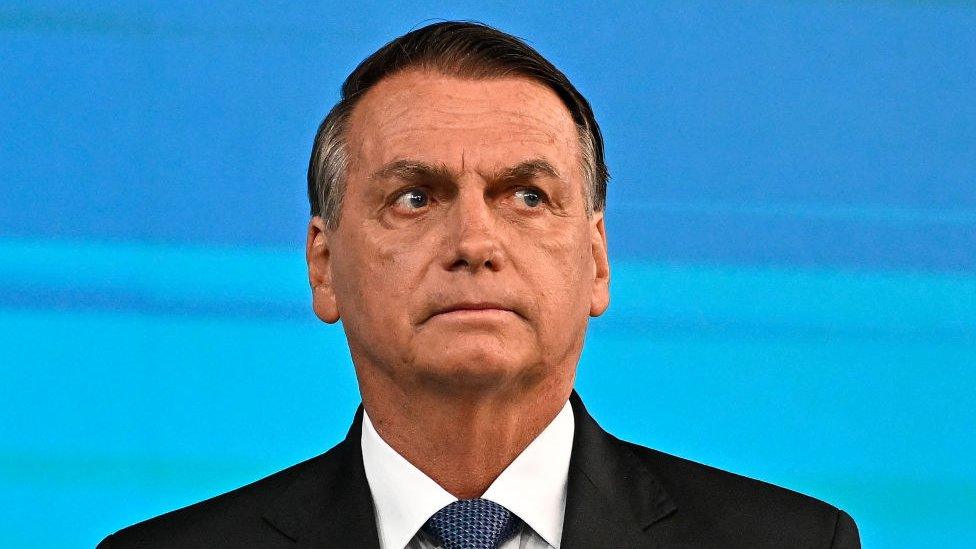
- Published22 January 2023
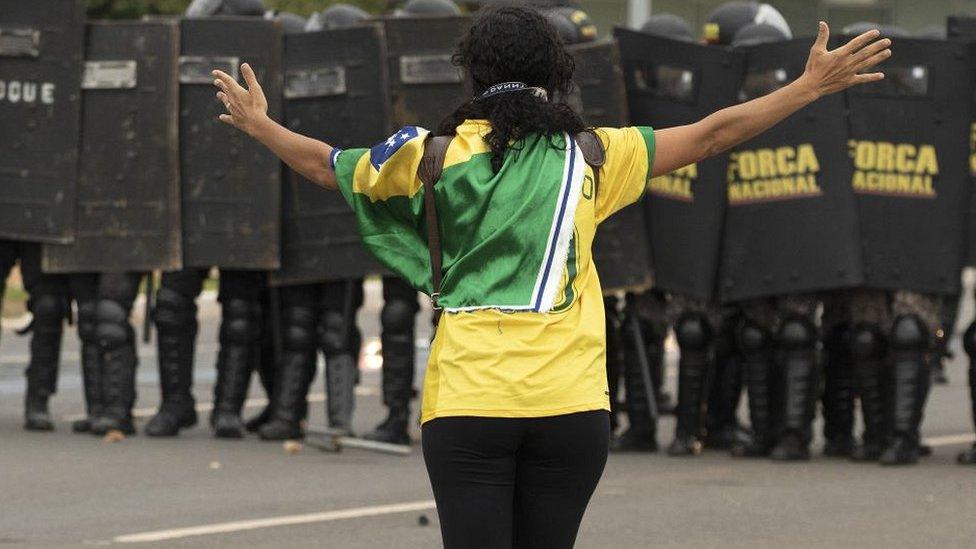
- Published14 January 2023
